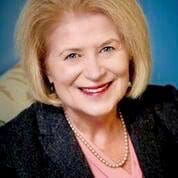Search Posts
Recent Posts
- Washington Bridge moving to 6 tight lanes – time for good situational awareness April 19, 2024
- Rhode Island Weather for April 19, 2024 – John Donnelly April 19, 2024
- Homeless in RI: Opening of Providence pallet shelter community delayed – Rhode Island Current April 19, 2024
- Outdoors in RI: Rainy days and fishing, We the People, customer service, 2A update – Jeff Gross April 19, 2024
- GriefSPEAK: Voir Dire – Mari Nardolillo Dias April 19, 2024
Categories
Subscribe!
Thanks for subscribing! Please check your email for further instructions.

Productivity Propaganda
By Mary T. O’Sullivan
“Turn Your Wounds into Wisdom” – Oprah Winfrey
An ice cream shop owner closes his shop after a customer verbally abused him. A man shoots and kills four people in a Tennessee Waffle House. In Chicago, with mental health facilities shut down, patients who otherwise would be under intense care are suffering undo mental stress. As a nation, our mental state went from worries about getting sick or spreading the virus, how to pay the bills, and trepidation about back to work orders, to coping mentally and psychologically with a two-month long at home quarantine. While we are used to with dealing with illnesses in general, dealing with the psychological effects of mass quarantine and social isolation is all new territory.
After two months, we realize that no one is immune from the consequences of many weeks and months without family, friends, associates and mere strangers in our lives. Stress, depression, boredom, irritability, fear, confusion, anger and frustration are some of the feelings that are manifesting as a result of so much time alone, isolated, cut off from humanity. And conflicting messages from government and public health authorities only intensify our worry and concern. A study conducted in the early 2000s during the severe acute respiratory syndrome (SARS) epidemic, revealed that “although community members, affected individuals, and health care workers were motivated to comply with quarantine to reduce the risk of infecting others and to protect the community’s health, emotional distress tempted some to consider violating their orders. (Pfefferbaum, North. New England Journal of Medicine. April 2020)
Mental health professionals, trained coaches and church groups are all offering support to anyone who is feeling the pressure. However, few of us have connected with them and refuse to admit we need help. It appears from recent research that the worry is fear of the stigma of seeming to be weak, of needing help, o not handling it ourselves. We pretend we can manage it; we bury ourselves in work, we make endless lists of “productive” tasks. We drive ourselves to make sure nothing is left undone. And yet, the mental pressure just continues to grow.
There has been much advice about the need for self-care during the COVID-19 pandemic. Eat healthy foods, get some exercise every day, get sufficient rest, take breaks every 50 minutes, etc. But no one has brought up the obvious. In a recent article in Bloomberg, digital anthropologist, Rahaf Harfoush, is quoted as stating, “it’s time to deconstruct the underlying cultural sources of burnout and do something radical: Work less.” Yes, work less. Working is the new health epidemic, causing more maladies like diabetes, high blood pressure, obesity, heart attacks, coronary artery disease, sleep ailments, depression, low energy, among others.
We are in the midst of a “pandemic induced burnout”, with increased responsibilities, jobs, childcare, home schooling, housework, and we want to tackle it all. We have a strong ethic of hustling, and stew over any time not spent productively. We fret over “wasted time”. This modern phenomenon is known as “Productivity Propaganda”.
These times aren’t normal times. Do we feel like we need a break? And what’s wrong with that? How do we feel when we are rested, fresh, and well nourished? What doors are open to us? Studies have shown that when people have adequate rest time and are taken care of, innovation, creativity and ideas flow. Health increases overall. Mental health improves. Calmness enters out lives. But, how do we get there? We feel like we can’t stop, we’ll just power through like always.
But, consider this, what would it be like for you to work less? What would your world look like with less stress, more time, and better mental and physical health? How will you know when you’re in that place, and how do you attain the peace of mind that keeps you calm?
Maybe it’s okay to ask for help. It’s okay to be vulnerable. If we think about the latest news, the breakdowns occurring in societal behavior, the rudeness, the riots, the shootings, maybe they could have been prevented if people felt empowered to ask for help. To rely on others for support is not a sign of weakness, but a sign of commitment to improve our lot in life.
Turn to the festive birthday car parades, social distance graduation celebrations, family video chats, virtual song and dance routines, all designed to create joy in our world of isolation. And how these contrast with the angry responses of others who turn to violence and protest. We need to take care of each other in a crisis and admit when we are hurting, bored, frustrated or angry. It’s okay to ask for help. We are waiting to support you.
Connect with Mary. [email protected], www.encoreexecutivecoaching.com,
401-742-1965

Mary T. O’Sullivan
Mary O’Sullivan has over 30 years of experience in the aerospace and defense industry. In each of her roles she acted as a change agent, moving teams and individuals from status quo to higher levels of performance, through offering solutions focused on changing behaviors and fostering growth.
Mary has a Master of Science in Organizational Leadership from Quinnipiac University. In addition, she is also an International Coaching Federation Professional Certified Coach, a Society of Human Resource Management Senior Certified Professional and has a Graduate Certificate in Executive and Professional Coaching, from the University of Texas at Dallas.
In her leadership and executive coaching, she focuses on improving the executive behaviors that slow down performance and lead to growth, such as soft skills, communication, micro-bias awareness, etc. She has successfully helped other professionals, such as attorneys, surgeons, pharmacists, and university professors, make career decisions to lead to success in their chosen careers. In addition, small business owners have sought Mary’s services to bring their companies into greater alignment, working on their culture, vision, mission, values and goals as well as organizational structure. Mary’s executive coaching has been mainly with large organizations among them: Toray Plastics America, Hasbro, Raytheon Company, Lockheed Martin, CVS Healthcare, Sensata Technologies, Citizen’s Bank, Ameriprise, BD Medical Devices, Naval Undersea Warfare Center, (Newport, R.I.), General Dynamics, University of Rhode Island, Community College of Rhode Island, etc.
Mary has facilitated numerous workshops on various topics in leadership such as, emotional intelligence, appreciative inquiry, effective communication, leading in adversity, etc. She has also written extensively on similar topics.
Mary is also a certified Six Sigma Specialist, Contract Specialist, IPT Leader and holds a Certificate in Essentials of Human Resource Management from the Society of Human Resources Development. Mary is also an ICF certified Appreciative Inquiry Practitioner, and a Certified Emotional Intelligence assessor and practitioner.
In addition, Mary holds a permanent teaching certificate in the State of New York for secondary education with Advanced Studies in Education from Montclair University, State University of New York at Oswego and Syracuse University. She is also a member Beta Gamma Sigma and the International Honor Society.
Mary dedicates herself to coaching good leaders to get even better through positive approaches to behavior change for performance improvement.
